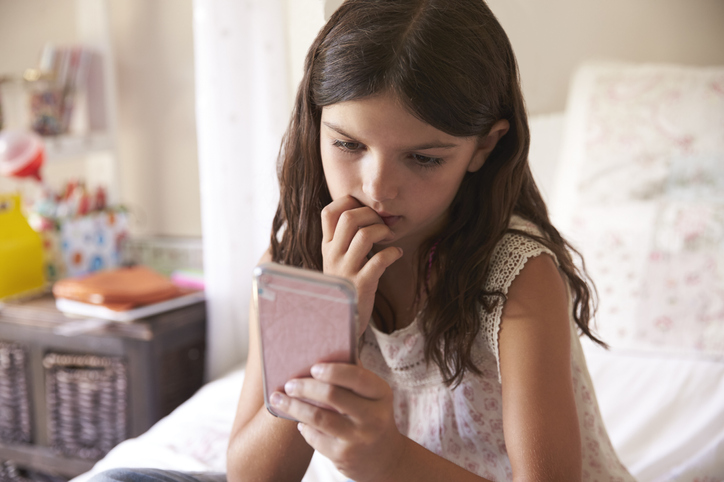Online bullying
Online bullying, or cyberbullying, is when a person or group of people use digital technology such as emails, instant messages, texts, chatrooms, forums and social media to threaten, tease or abuse you.
This content has been written for children and young people. If you’re looking for information for over 18s, visit our Types of Crime information about online harassment.
Some people think that because this is not physical, and usually the person isn’t with you, online bullying isn’t as harmful as other forms of bullying. We know that’s not true.
In fact, because you probably can’t see the bully, and sometimes you might not even know who or where they are, online bullying can affect people even more than face-to-face bullying.

Online bullying often takes place alongside bullying and other types of crime. It can include:
- threatening or embarrassing texts/emails
- sexting – being asked to send sexual pictures of yourself to someone, or receiving sexual images that you don’t want
- being sent offensive or upsetting images
- being called names or having rumours spread about you on websites, forums or social media
- being blocked from joining social networks or forums, or having your profile removed, to make you feel left out
- someone creating a fake profile of you online and posting as you
- stalking – being harassed and followed online, or someone online finding out your location and turning up there; it could be someone you know or someone you don’t
- getting prank calls and non-stop texts
- grooming – this is when someone encourages you to do things that they want you to do. They may pretend to be your friend, boyfriend or girlfriend but may not be who they say they are.
Online bullying needs to be stopped because:
- bullies can contact you even if they’re not close by, which means you may be constantly worrying
- it can be hard to find out who is bullying you if they hide their identity
- you may feel more isolated because bullies can share information with others online or via phone.
Each social network platform is different, but all of them – including TikTok, Instagram, Snapchat, Twitter, Facebook, and YouTube – have policies and procedures in place to stop users being bullied.
So you can:
- report the person who is bullying you
- unfriend, block or delete the person who is bullying you
- take a screenshot of the bullying.
Even though you can do these things yourself, it is still good to talk to a friend or an adult you trust about the bullying. They will be able to help you deal with the bullies, and make sure you stay safe in future.
Online bullying can make you worried, sad, angry or lonely – especially if you feel like you’re trying to deal with this all on your own. Remember it’s not your fault, and there are lots of things you can do to stop it.
Bullying via your mobile phone can be just as frightening as bullying on social media. Problems can include silent calls, insulting and threatening texts, and abusive verbal messages or voicemails.
There are some things you can do to try to stop the bullying:
- Keep a record of any abusive calls you receive, or threatening or upsetting message that you have been sent, so you can show someone.
- Don’t reply to any nasty messages or calls, and don’t answer any calls from a withheld number or from a number you don’t know.
- Talk to an adult you can trust about what is happening. You may also want to think about reporting it to the police; making anonymous or abusive phone calls is a criminal offence, and mobile phone companies can only take action on the bully’s account – such as blocking it – if the police are involved.
The internet can be fun, but there are some dangers. By following a few simple guidelines you can stay safe online:
Your private information should stay private: don’t give out personal details, passwords or other private information online, and make sure you set your privacy settings so only those people you know and trust can access your information.
Once you share, it’s out there: although most sites will have a ‘delete post’ option, once you have put something up, anyone can save it and re-post it.
Think twice before posting: don’t upload or post photos or videos that you wouldn’t be happy for other people to see. If you wouldn’t print and pass these images around your school or show your mum or dad, they are not appropriate to share by phone or online.
Be careful who you chat to: if somebody adds you as a friend but you don’t know them, delete their request and ignore their messages. And don’t meet up with people you’ve met online – not everyone is who they say they are.
Remember, if anything makes you feel upset, scared or uncomfortable, tell an adult you trust.
Victim Support’s Children and Young People Services – you can contact your nearest Victim Support office, call the 24/7 Supportline, contact us via live chat, or if you are 16 or older, you can create a My Support Space account. This is a free, safe and secure online space where you can work through interactive guides to help you move forward after crime.
Thinkuknow – information for young people of all ages, as well as parents and teachers, on how to keep safe online.
Childline – 24-hour support for young people on a range of issues: 0800 1111.
The Mix – information and support for under 25s on a whole range of issues including bullying. Get confidential help by email, text, webchat or phone: 0808 808 4994.
